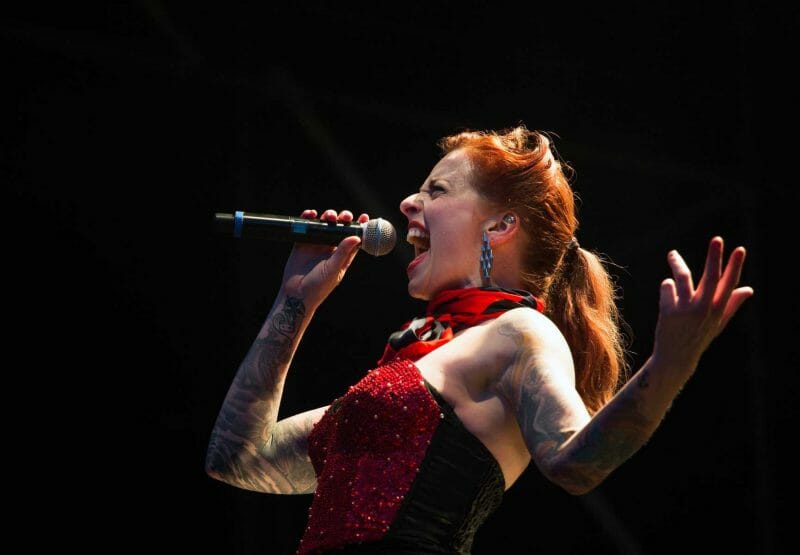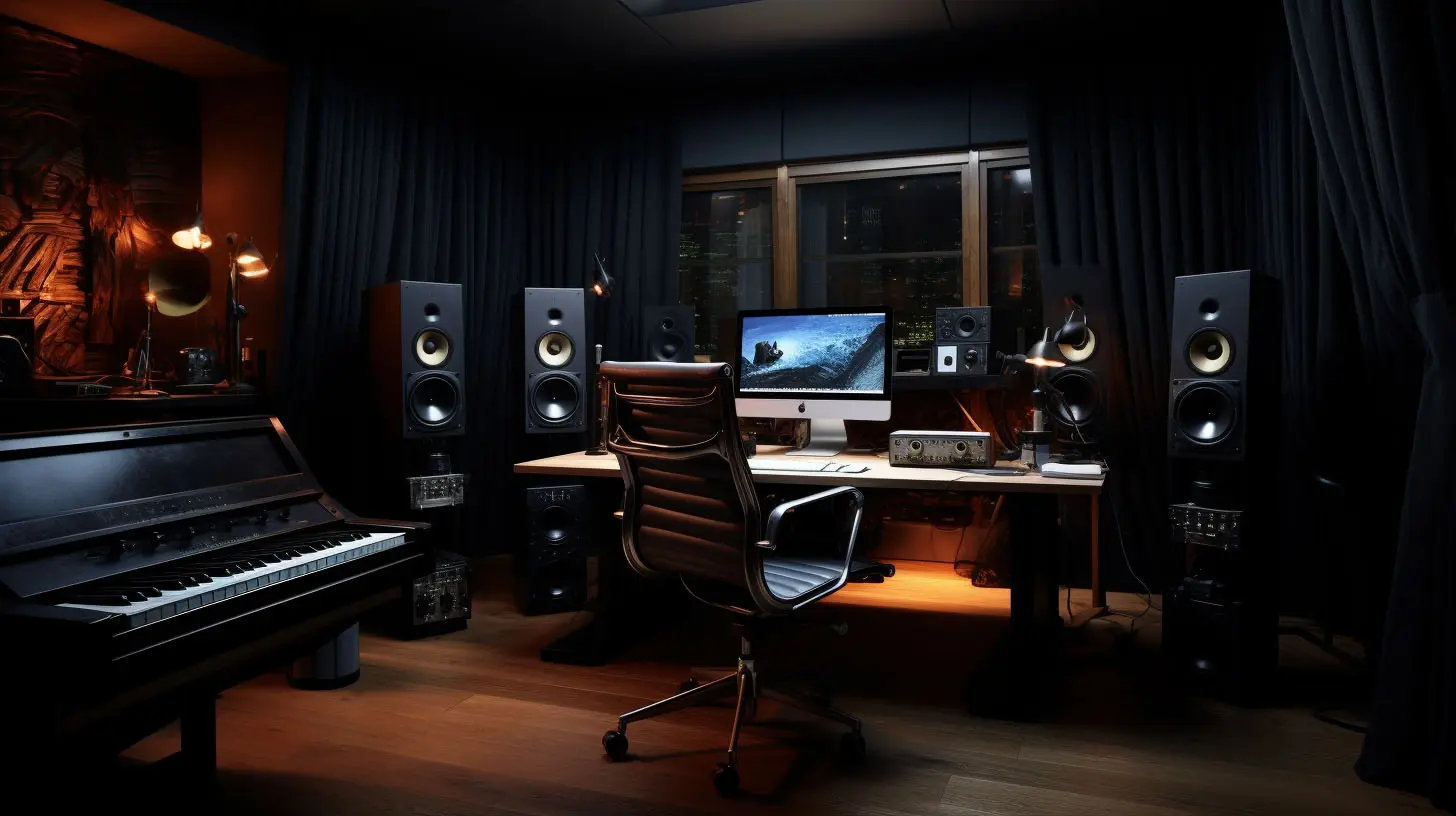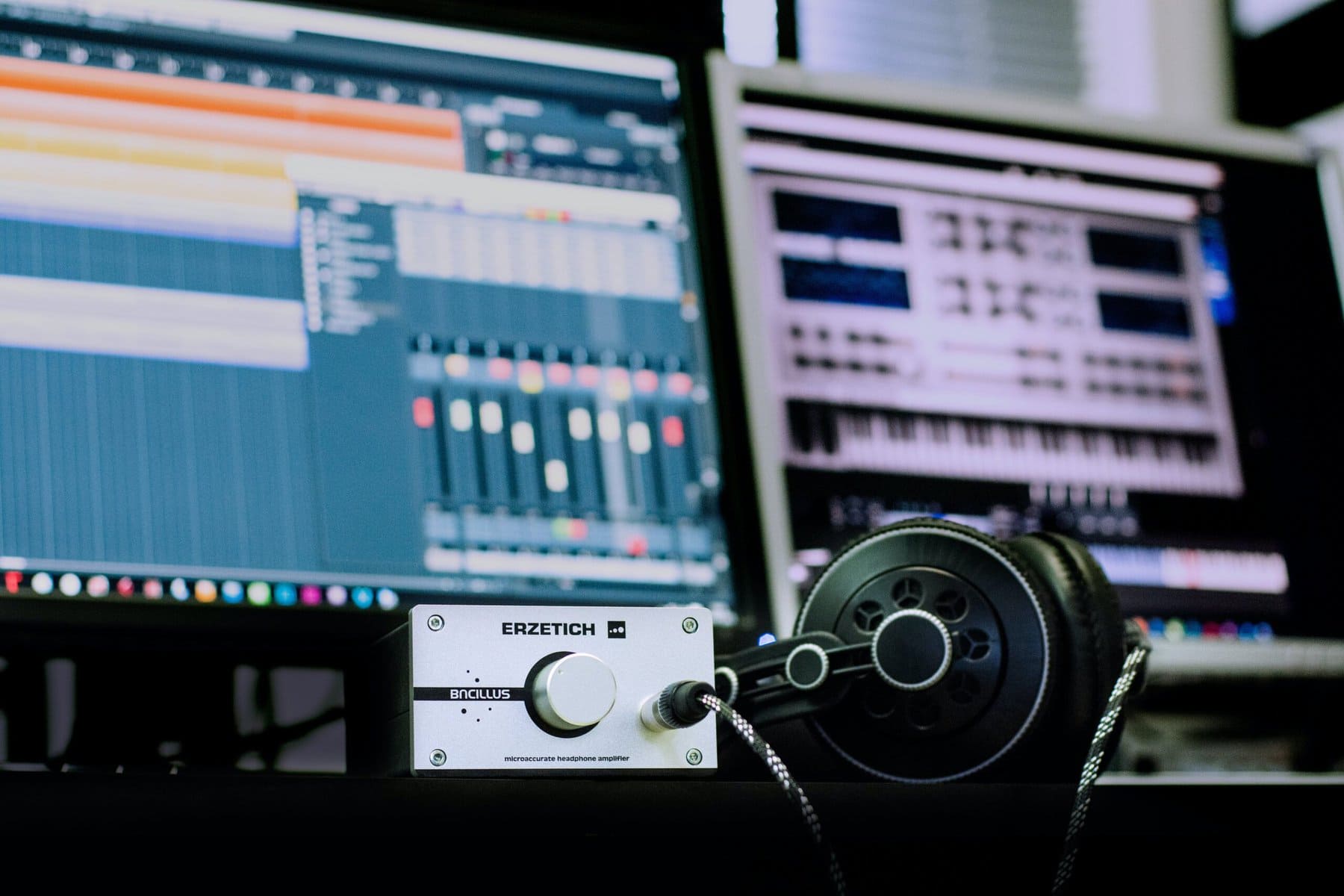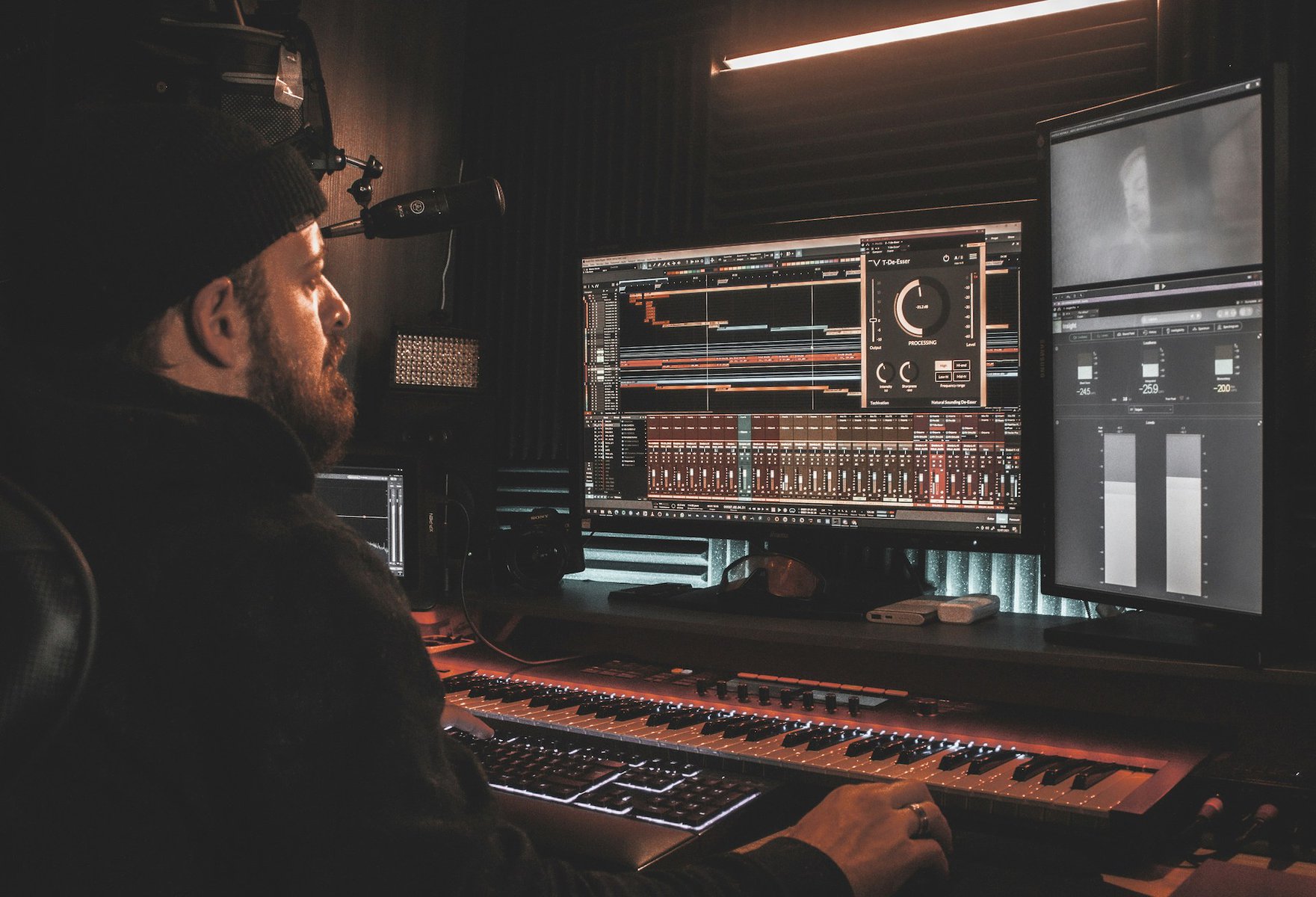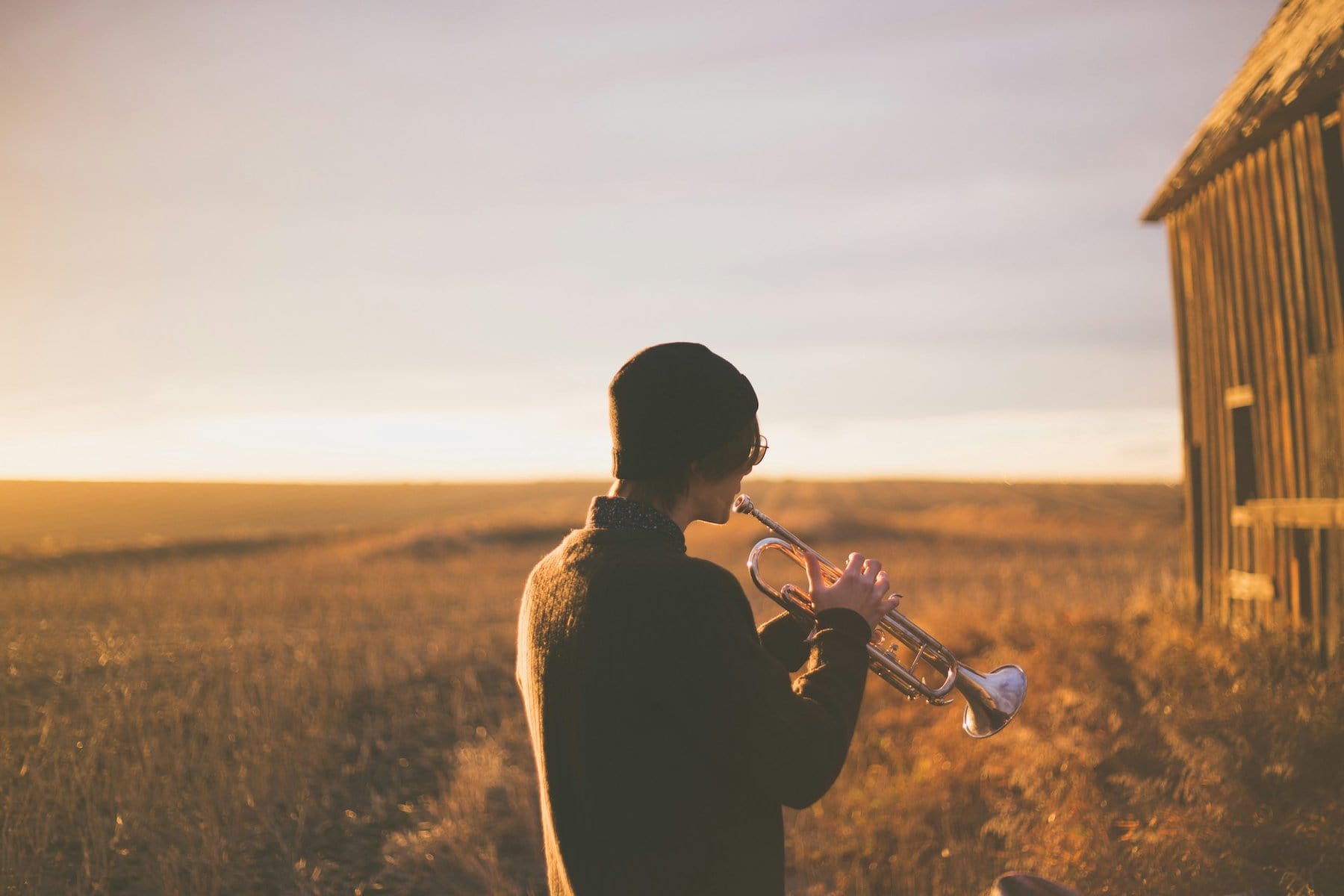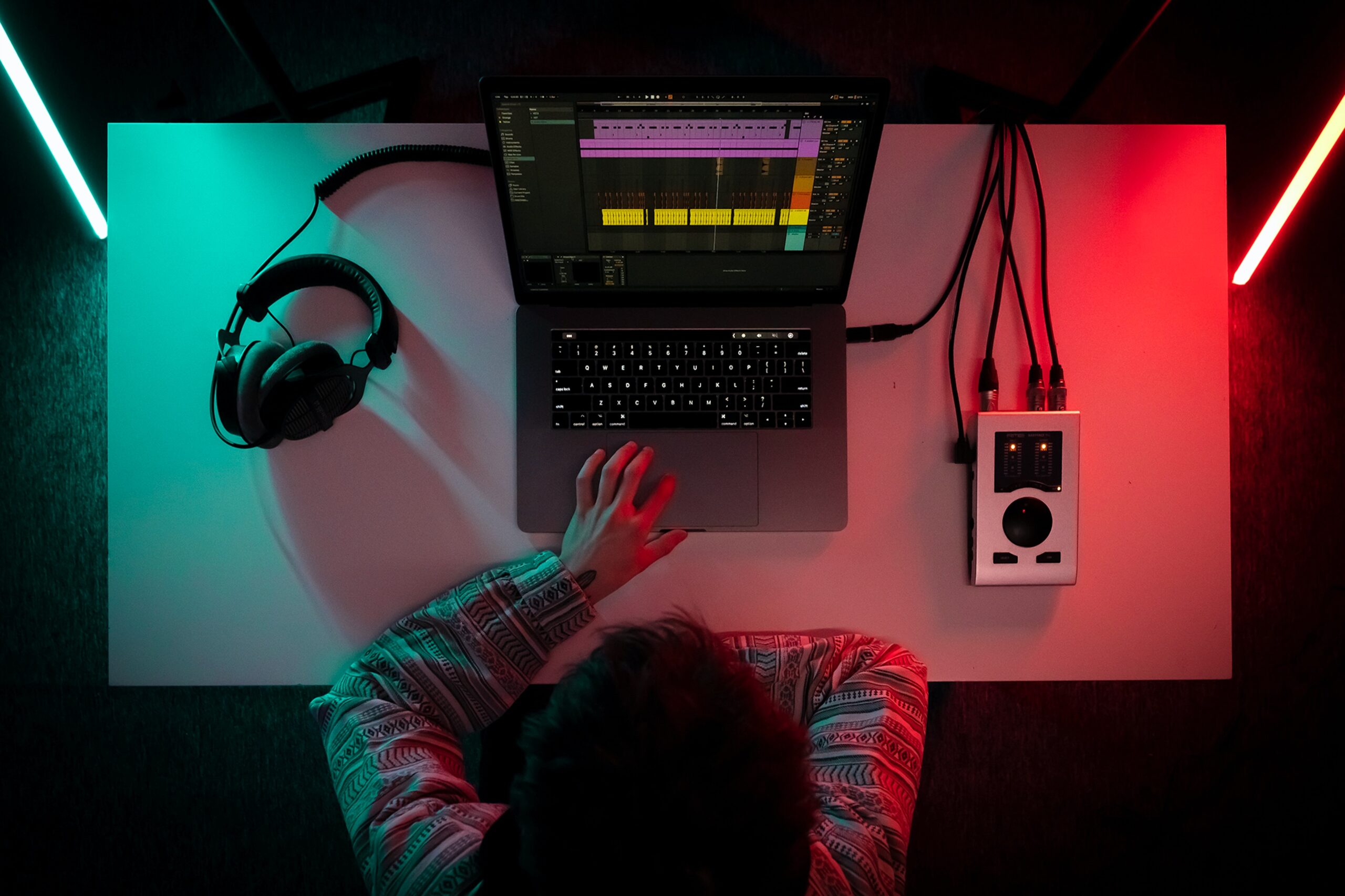For beginners and professionals alike, stage presence is extremely important.
How you make your audience feel is just as important as how you sound. Many performers forget that people have both ears AND eyes!
If you can appeal to all the senses, you will have a career set for life.
Today you’re going to learn 10 of the best tips for an electrifying stage presence – so you can nail every performance and wow your audience.
I’m guessing you’re here because you want to make your mixes sound professional. We put together a brief training that covers a totally new approach to music production. Until now, everyone has been teaching production totally backward. Just click below to watch.Get industry-quality every time (steal this framework)
But if you just want to learn all about Stage Presence specifically, keep reading.
Tip #1: Find what makes you unique and lean into it.
An important lesson to learn about playing shows (and your branding!) is this:
Your everyday persona and your performer persona don’t have to be one in the same.

You are a complicated individual. You have thousands of desires, fears, quirks, and beliefs.
The real you is like a stew. All the tastes run together, so it’s hard to pick out any one particular flavor.
But on stage, you don’t have to be a stew. You can be a gourmet dish, one that’s unique to anyone who tastes it.
Metaphor aside, you can exaggerate your own uniqueness, and the audience will eat it up.
To take advantage of this, try out this exercise:
Write down 20 things that make you unique. This could be a way of talking, a way of moving, a sense of humor, an experience, a quirk, anything.
If you’re struggling, ask your friends.
Then, pick the five most unique things off that list. How can you exaggerate these uniquenesses on stage?
Doing this will create a persona for your fans that is easy to latch onto. They’ll feel like they really “know” you.
The best part about this exercise is this: the persona you create is still you. It’s just a few specific parts of you, amplified.
A common mistake performers make is thinking that they need to change who they are for their stage persona to please the crowd.
That’s a recipe for disaster. You never want to become someone entirely different for years on end. It’s terrible for your mental health, and it comes across as fake to the crowd.
But with a persona based on the most unique parts about you, you’ll still be yourself the entire time.
Which means you’ll be more interesting, confident, and happier!
Tip #2: Take up a lot of space.
It’s a big stage!
Don’t spend the whole show in front of the microphone.
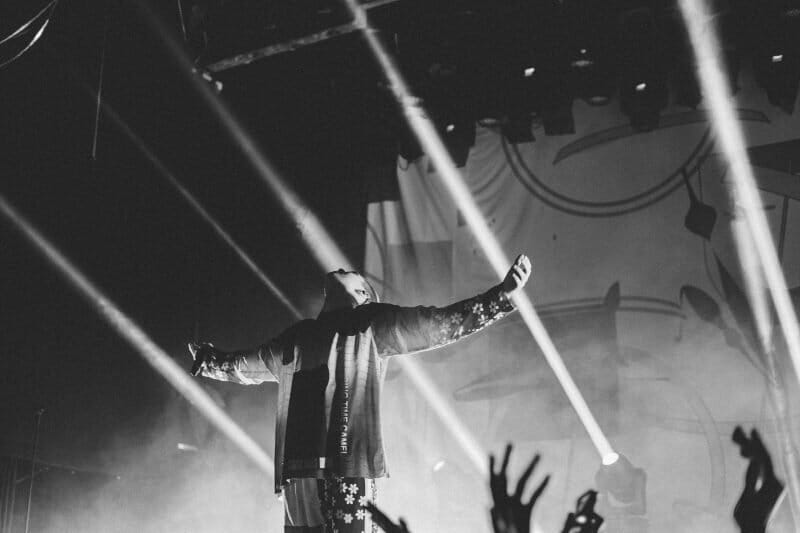
The audience wants to see you move and interact. They want you to entertain them, and that means entertaining all of their senses.
So… make the entire stage your playground.
Strut around while you’re playing.
Interact with your bandmates.
Jump up on the monitors (if they’re stable).
Go to the left side of the stage and play to the audience there. Later in the song, do the same to the right.
There’s a million other things you could do. The more shows you play, the more “moves” you’ll figure out.
Remember, the dumber you feel… The better it looks!
The big takeaway is this: make sure you are not staying in your “zone.” A lot of beginner bands struggle with this. It makes for a dull show.
Explore the space, and you’ll be fine.
Tip #3: Cut silence from your shows.
One sign of an amateur act is silence in their shows.

You know what it’s like…
You get up on stage and start to tune your instruments. The drummer taps around on the cymbals. The guitarist messes with some of her pedals.
The audience is waiting patiently for something to happen. But every moment that passes they’re losing energy.
That energy is crucial to a memorable show.
You never want to give the audience a break. The show should constantly give something for the audience to focus on.
For example, you want to move into the next song before the audience’s applause dies down.
It doesn’t have to be immediate. You can bask in the applause for a few seconds.
But before the clapping stops, you should be moving into your next song.
You should also try writing a few musical interludes to connect some of your songs.
Audiences love when bands write original, unreleased music for shows. It makes them feel like they’re having a unique experience.
Writing a segue between two pieces is a great way to make the show more memorable.
Finally, banter with your audience. Make conversation, make a statement, make a joke, anything.
Speaking of bantering…
Tip #4: Choose your outfit to look the part.
Your stage energy and outfit need to match up. You need to create a full sensory experience for the audience.
When you’re on stage, you get to be the coolest person in the room. Lean into that.
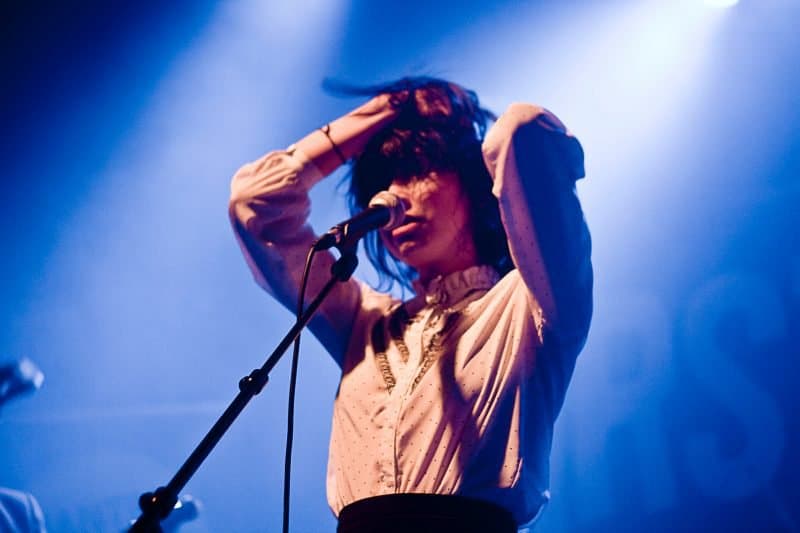
Ask yourself this question: What can you do to make yourself seem cooler than everyone else?
Now, this isn’t permission to act like an ass. Cool doesn’t have to mean egotistical.
But coming across as “larger than life” will make the show seem even more important for the audience.
Your style will likely be informed by the trends of your genre. Don’t match these trends exactly, but also don’t be the one guy at an indie-folk concert in KISS paint.
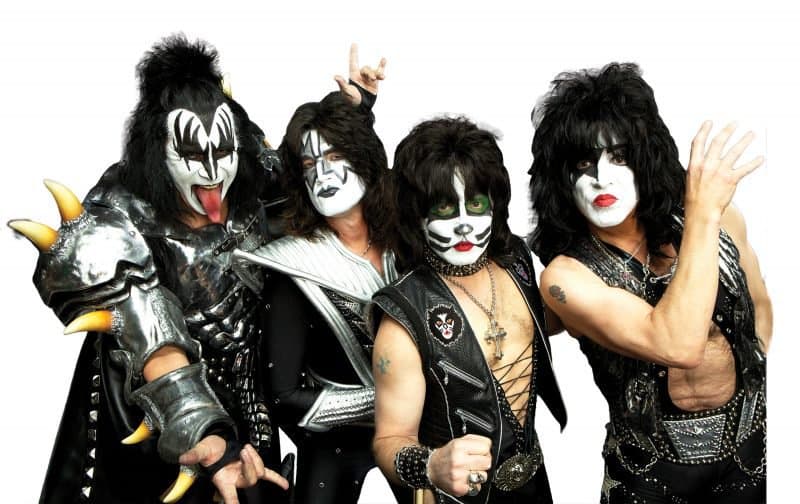
Choose a signature item you can be known for. Think Michael Jackson’s white glove, Bono’s sunglasses, or Lady Gaga’s insane dresses.
This is great for performance. It will give your audience something to latch onto, something to recognize you by.
It’s also great for your brand. Make sure you wear that item in 80% of your artist photos. When people think of you, they’ll start to think of that item.
That will make you more memorable.
Also, be conscious of your shoes. They’re more obvious at concerts than in real life, because you’re on a stage.
Don’t wear a pair of converse that are falling apart. The audience will be able to see.
Tip #5: Involve the crowd.
The more you draw an audience in, the more invested they will be.
The more invested they are, the more likely they are to buy a t-shirt after the show.
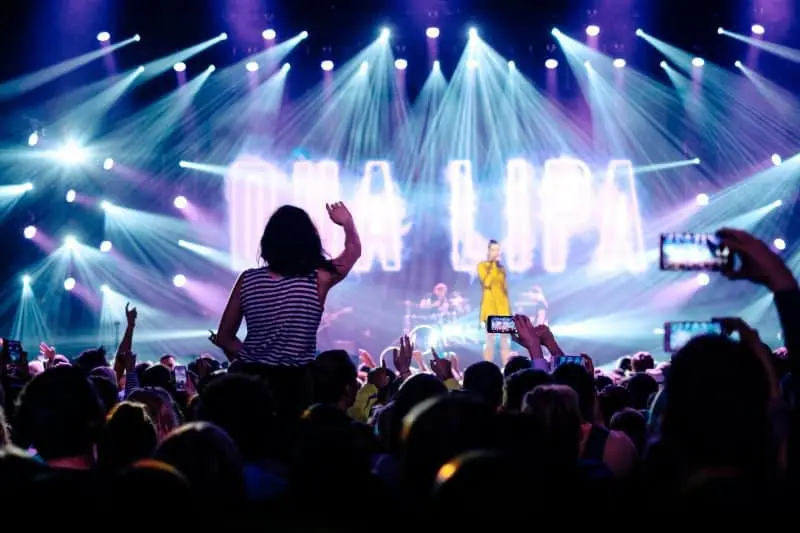
Banter with your crowd. Talk about anything and everything that comes to your head, as long as it relates to the show in some way.
I’d recommend planning some talking points beforehand. They can be broad, that way you don’t get stuck with a blank mind when you walk up to the mic.
Make sure to have eye contact with the crowd as much as possible. Draw them in with your gaze.
Make sure you’re connecting with the whole crowd though, not just two or three people.
You can also try the timeless rock show technique: ask the audience to sing along with you.
That gets them actively participating in the show. They’ll remember that part more than any other part in the concert.
Bonus points if you teach them the part beforehand. That will give them a sense of community with the people around them.
If you have some space, try jumping off the stage and dancing with them. That will really make them feel like part of the show.
Just make sure you can keep performing while you’re doing it. That will be amazing for people in the front, but people in the back will be annoyed if the song stops.
Finally, here’s a weird tip: Try applauding your audience as you walk out on stage.
It may seem weird (since, you know, they’re the ones applauding you), but it will really get the energy in the room going.
And like we’ve said before: energy is the key to an amazing show.
Tip #6: Break character – subtly.
Looking impressed or excited by your own music makes you seem human. It helps the audience to relate with you.
This is a really simple, subtle tip. But it has power to it.
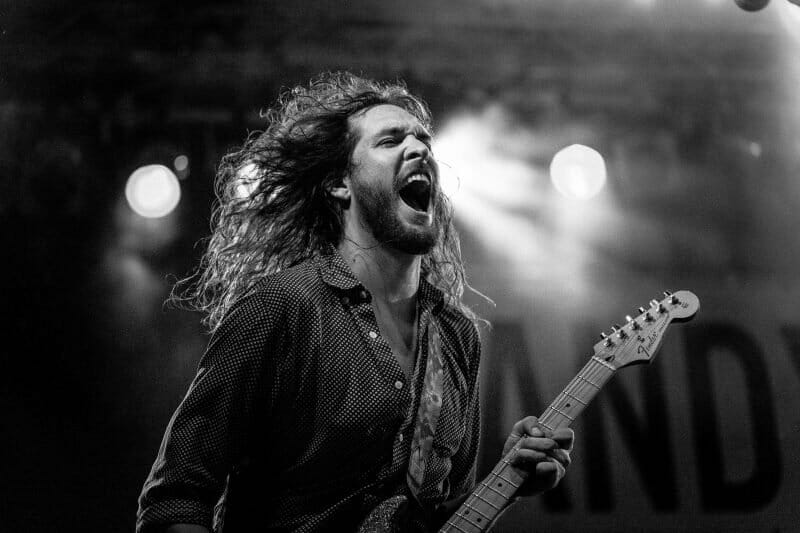
Crack a smile when your guitarist has a big moment in a guitar solo.
Nod at your drummer when they finish a drum solo.
Rub your eyes sullenly after you finish singing an emotional song.
It shows a crack in your performer persona. It will make you simultaneously more relatable and more mysterious at the exact same time.
Tip #7: Do your research.
When you were just starting to play an instrument, what was the best way to learn?
Teaching yourself songs from your heroes.
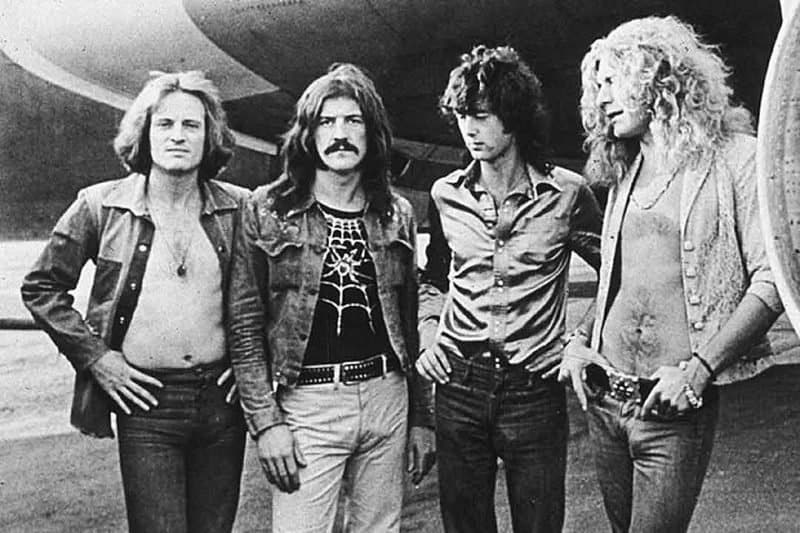
I’m sure every guitar player had a dozen or so covers in their pocket in case someone at a bonfire handed them a six-string.
Learning covers taught you style and musicality. You wanted to learn how to do what the greats did naturally.
The same is true for your stage presence.
You should be soaking in as much information as you can and learning from it.
Go to YouTube and watch some legendary performers. Queen. Michael Jackson. Kanye West. Metallica. Whoever fits your style.
See how they hold themselves on stage. Ask yourself some questions:
What is the frontman doing that I really like?
How is the band interacting with each other?
How are they transitioning songs?
How are they engaging with the audience?
Take notes on what you find and practice it in your next rehearsal.
Do the same with live bands. Go to a lot of concerts and take notes on your phone.
ONE IMPORTANT POINT: Don’t just copy what you see. Change it to fit your own style.
You want to…
1) ADOPT their body language, and…
2) ADAPT it to your unique personality.
Don’t just rip off other artists. Use their moves and charisma as inspiration.
Tip #8: Record your performances.
Next time you perform, get someone to record it.
Sports teams do this all the time, and it’s one of the big reasons why the best teams win.
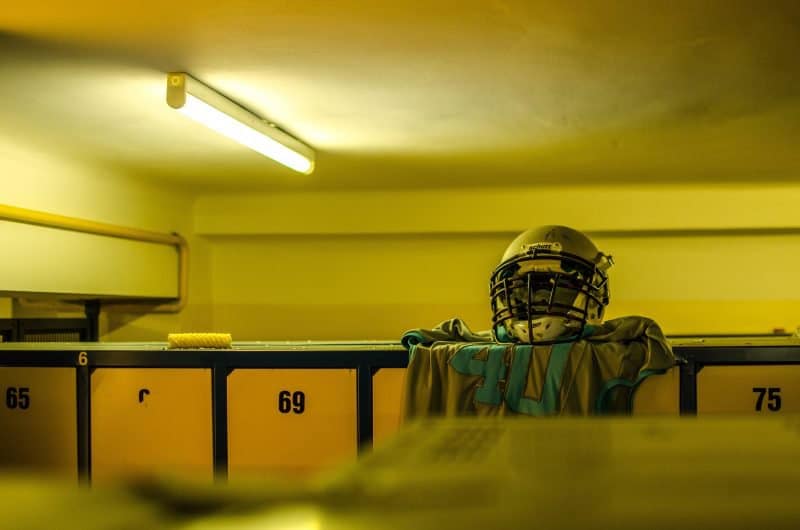
The day after their game the team will sit down in the locker room and watch the film on-screen. The coach will point out anything they did well and anything they can improve on.
That system of feedback and reflection is a game changer in the world of sports. It’s the best way to learn what parts of their performance they need to focus on improving.
The same is true for musicians. Having the ability to reflect and change is huge.
Have a friend of the band set up a camera in the back of the venue. A few days after the show, sit down and watch it. What do you see?
Is your body language clear?
Does it match the music?
Is every member of the band interacting?
Do you look confident and energetic?
Don’t be afraid of what you might see. It will be uncomfortable. But you’ll undoubtedly be better for it!
Tip #9: Understand what your audience is looking for.
Understanding your audience is one of the keys to success in the music industry.
The more you know about them, the more you can cater to their needs.
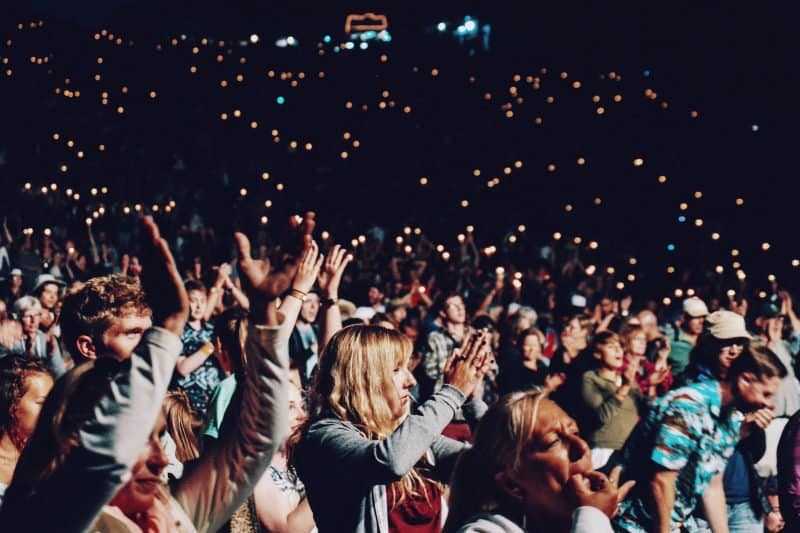
Ask yourself:
What do other musicians in my genre do?
What’s the emotion of my music?
What are my audience’s expectations?
Answering those questions should help to create a broad idea of what your stage presence should be. Broad is all you need right now. You can get more specific over time.
It’s important to remember as you’re creating your stage presence:
It’s not about you.
It’s about the audience and how you make them feel.
They came to your show to be entertained. Get out of your head and give them what they want and then some.
Ask yourself:
What can you do to make sure their eyes don’t go off you for a second?
What can you do to increase the impact of the lyrics?
Asking yourself these types of questions should help you come up with new ideas for your stage presence.
Tip #10: Practice, practice, practice.
Practicing is the number one way to build confidence.
And confidence is the number one way to put on a great show.
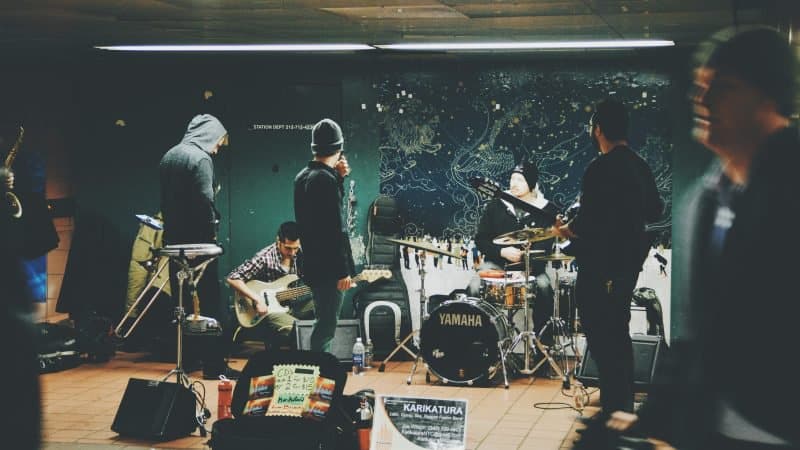
Any chance you can find to practice your stage presence, take it.
Your most frequent practice space should be your band rehearsals. It might seem weird since there’s no audience in front of you, but that may actually play to your favor.
Audiences give you energy to feed your confidence. If you get used to practicing WITHOUT that energy to help you, the actual show will be MUCH easier.
Not to mention, if you are already used to full-on stage presence in your rehearsals, you won’t have to think about “turning it on” during performances when the extra adrenaline is pumping.
You should also try to play some small shows to get experience. Can you keep a crowd of 15 people invested and entertained? That’s harder than a crowd of 2,000 but with much lower stakes.
Remember:
The crowd will only be as enthusiastic as you are!
So go into the small shows and your practices with the same energy and confidence as your big shows. You’ll get the audience on your side in no time.
Conclusion: Stage Presence
Stage presence will always be one of the most important – and most confusing – parts of being a musician.
Just know that by working on it, you’re supercharging your music career!
You’ll be putting on better shows, which will lead to more fans, which will lead to more sales, which will lead to nationwide fame.
Next Steps
If you want to dig deeper into music production and learn what it actually takes to make mixes that sound pro…
And you’re an intermediate or advanced producer…
Be sure to check out the free masterclass:
Enjoy!



